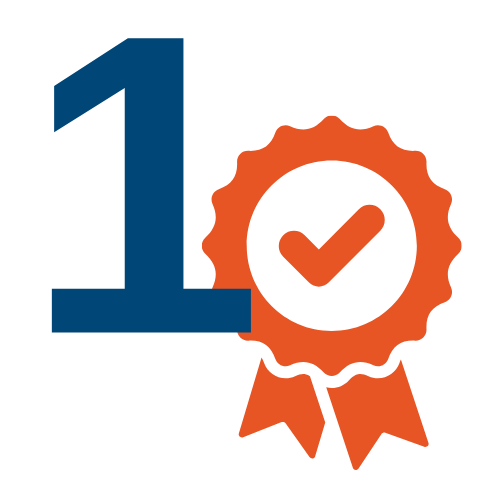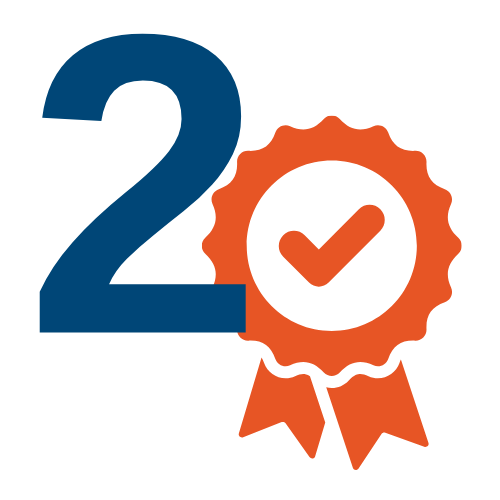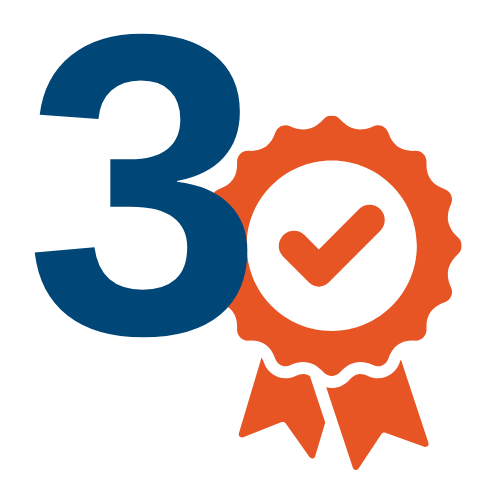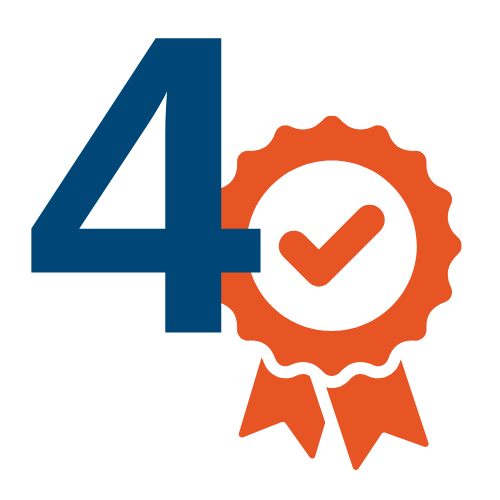Quality Education, Training, & Programs

Incorporating QI into Residency Programs
As more organizations are embracing the use of validated QI tools to improve how they deliver care, pharmacy residency programs are forgoing the traditional Medication Use Evaluation (MUE), and “research light” methods as the foundation of quality improvement projects. How do programs pivot to provide education on quality improvement models and precept true quality improvement projects?
Consider the following six-step framework proposed by the College of Surgeons.
- Consider established education programs like the Institute for Healthcare Improvement (IHI) Open School, the American Society of Clinical Oncology Quality Training Program (ASCO QTP), or the Six Sigma Training Program.
- Utilize both didactic and experiential learning. Classroom style instruction is important for providing a common language and foundation, but applying tools to an actual QI project coupled with in-person conversation & coaching facilitates the learning and promotes adoption of quality and safety into clinical practice.
- Focus on learning and practicing the QI principles before focusing on project outcomes. QI can be “messy” and there are many barriers to overcome. Understanding the QI principles should be the goal.
- A siloed QI curriculum is bound to fail. An organizational culture in which QI is valued and the faculty serve as role models will positively influence the resident’s ability to learn and apply QI skills.
- Faculty professional development in QI methodology is critical. There are likely few teachers of QI and even fewer experts in QI at healthcare organizations. Identifying interested faculty and investing in their education will prevent burn out of the already limited number of coaches and mentors, and ensure ongoing successful QI projects.
- You are more likely to gain access to resources if projects are aligned with strategic priorities
- Encourage residents to develop relationships with hospital or organizational quality leaders, or to serve on quality committees. Projects formed from these partnerships are more likely to affect the day-to-day work of residents and faculty allowing them to see results of efforts in real time and increase engagement.
- Share QI work at conferences, grand rounds or to organizational leaders to facilitate awareness and celebrate successes. This is essential to creating buy-in and promoting the successes of the QI program.
- Publish, publish, publish. There is very little in the medical literature regarding QI projects and outcomes using true QI methodology. There is a huge opportunity to promote QI work, demonstrate the value in it, and applaud the resident’s hard work.

Quality Education, Training, & Programs
Below, HOPA provides answers to some frequently asked questions about quality improvement. In this section, one can also explore national resources for quality education and trainings.
FAQ Series from HOPA's Quality Oversight Committee
FAQ #1: Why should hematology/oncology pharmacists be concerned about quality?

This Introduction to Quality Fact Sheet directs pharmacists to examine the systems and processes that are used to provide care. This sheet defines commonly used quality terms, and explores the difference between quality improvement projects and traditional research projects.
Download FAQ #1
Created by Kathlene DeGregory, PharmD, BCOP, and Sydney Bringgold, PharmD, BCOP
FAQ #2: How can hematology/oncology pharmacists approach the quality improvement process?

This fact sheet is second in our series of quality improvement FAQs. It highlights examples of existing quality improvement models in order to provide a framework in which to improve a system or process.
Download FAQ #2
Created by Kathlene DeGregory, PharmD, BCOP, and Sydney Bringgold, PharmD, BCOP
FAQ #3: How can hematology/oncology pharmacists understand the problem?

The third fact sheet in our series of quality improvement FAQs discusses the importance of understanding the existing process and data before finding appropriate solutions. The sheet also details specific steps and methods to guide one's greater understanding of a problem.
Download FAQ #3
Created by Catherine Martin, PharmD, BCOP; Kathlene DeGregory, PharmD, BCOP; and Sydney Bringgold, PharmD, BCOP
FAQ #4: After understanding the problem, how do hematology/oncology pharmacists diagnose the problem?

The fourth fact sheet in our series of quality improvement FAQs discusses diagnosing and defining problems. The FAQ offers a variety of tools that can be used to identify the root causes of a problem and set the direction for how to solve it.
Download FAQ #4
Created by Sydney Bringgold, PharmD, BCOP
More FAQ documents coming soon!
American Society of Clinical Oncology (ASCO)
The Institute for Healthcare Improvement (IHI)
- IHI Open School
- Training is free for residents and discounted for those in academia
National Association for Healthcare Quality
NAHQ Healthcare Quality Principles: Across the Continuum
- Introduces fundamental quality and patient safety principles, methodologies, and concepts that enable professionals working in healthcare quality to expand their knowledge and integrate quality into practice settings
American Society for Quality (ASQ)
- There are several methodologies and tools available to assist with quality improvement projects including Six Sigma, Lean, and Lean Six Sigma.
- LinkedIn Learning Opportunities
Employer-Sponsored Opportunities
Employers often sponsor training and educational opportunities related to quality improvement. These courses aim to enhance employee’s knowledge and skills in various aspects of quality. Members of pharmacy administration or human resources are key members of the workplace to reach out to for guidance of institutional quality related educational offerings.


